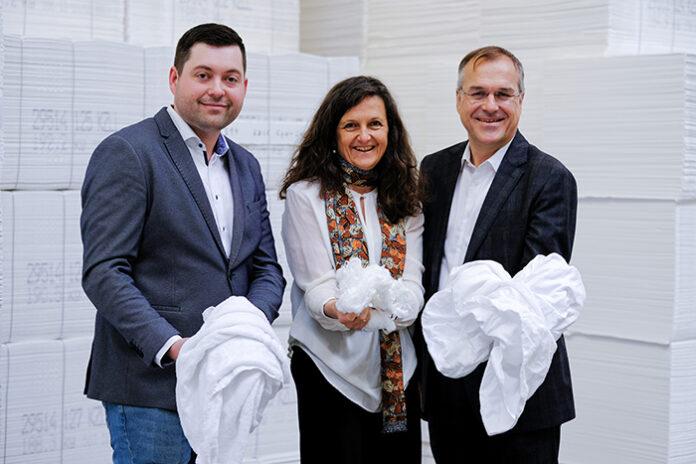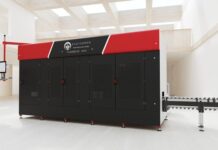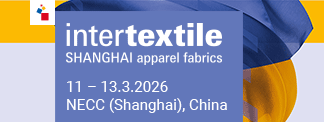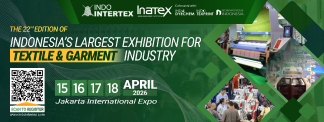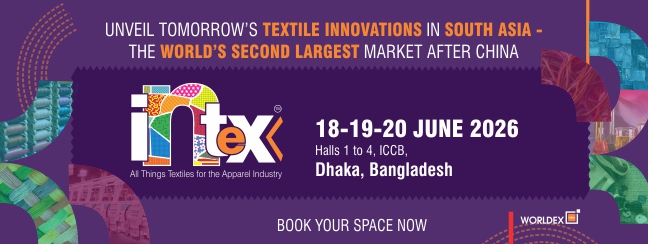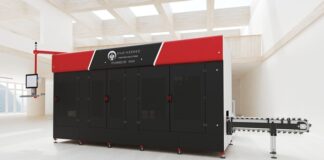The Lenzing Group, a world-leading provider of specialty fibers for the textile and nonwoven industries, has taken another big step towards achieving a circular future in collaboration with several partners. Austrian companies and not-for-profit organizations, including Lenzing’s logistics and sorting partner ARA (Altstoff Recycling Austria AG), the textile service provider Salesianer Miettex and Caritas, as well as the Swedish pulp producer Södra have joined forces to collect used household and clothing textiles for reprocessing to produce pulp and, ultimately, new lyocell and viscose fibers.
In this pilot project, used textiles collected by Salesianer Miettex that are not suitable for reuse will be passed on to ARA, before being delivered to Caritas for sorting by hand at a recycling plant. The Caritas recycling facility provides secure employment to more than 70 people with disabilities. After the sorting process, the textiles will be delivered to Södra for recycling and processing to produce OnceMore® pulp. This method is a world first in the industrial recycling of textile waste made from blended fibers. Lenzing will then apply its innovative REFIBRA™ technology to produce new lyocell and viscose fibers.
“One company alone cannot solve the pressing problem of textile waste. Proactive partnerships such as these allow us to make progress and accomplish real systemic change,” says Sonja Zak, Head of Textile Sourcing & Cooperations at Lenzing Group. “We work hard to make our industries more sustainable and promote the transformation of the textile business model from linear to circular. Continued action across the whole sector will be necessary to facilitate this transition.”
“The EU’s action plan puts waste and secondary raw materials front and center to cement their role on the market. Thus, in the recycling business, it is vital to maintain a 360-degree view of all consumer products. ARA has been instrumental to the implementation of extended producer responsibility in Austria for 30 years. It therefore makes sense to incorporate this expertise into the textile sector. This means that in the future we will be recycling not only packaging, but as many products as possible, including textiles,” adds Martin Prieler, CEO of ARA.
Partnerships for systemic change
The transition to a truly circular economy requires collaboration between several parties. Lenzing represents only one part of the textile and nonwoven value chain and is reliant on the cooperation of partners across the whole chain. Partnerships and projects such as these help Lenzing to promote and accelerate systemic change.
Lenzing and Södra have been working together on textile recycling since 2021, making a crucial contribution to the promotion of circularity in the fashion industry. In the course of their cooperation, the companies plan to share their knowledge and jointly develop methods to facilitate the broader use of cellulose-based used textiles on an industrial scale. The further developed OnceMore® pulp will then be used for various purposes, including as a raw material for the production of Lenzing’s specialty fibers under the TENCEL™ brand fibers with REFIBRA™ technology. The aim is to reach an annual processing capacity of 50,000 tonnes of textile waste by 2027. “This collaboration is a great example of how we can join forces and connect the dots in the textile recycling value chain,” says Åsa Degerman, Manager OnceMore® of Södra.
In line with its circular economy vision, “We give waste a new life. Every day”, Lenzing is driving the industry towards achieving a fully-fledged circular economy by endeavoring to give waste a new life in all aspects of its core business. Lenzing has been developing future-proof innovations in recycling for years, including its REFIBRA™ and Eco Cycle technologies. Beside the use of pure dissolving wood pulp, these technologies enable the processing of a large proportion of recycling material that is derived from cutting scraps in cotton production and second-hand clothing.

